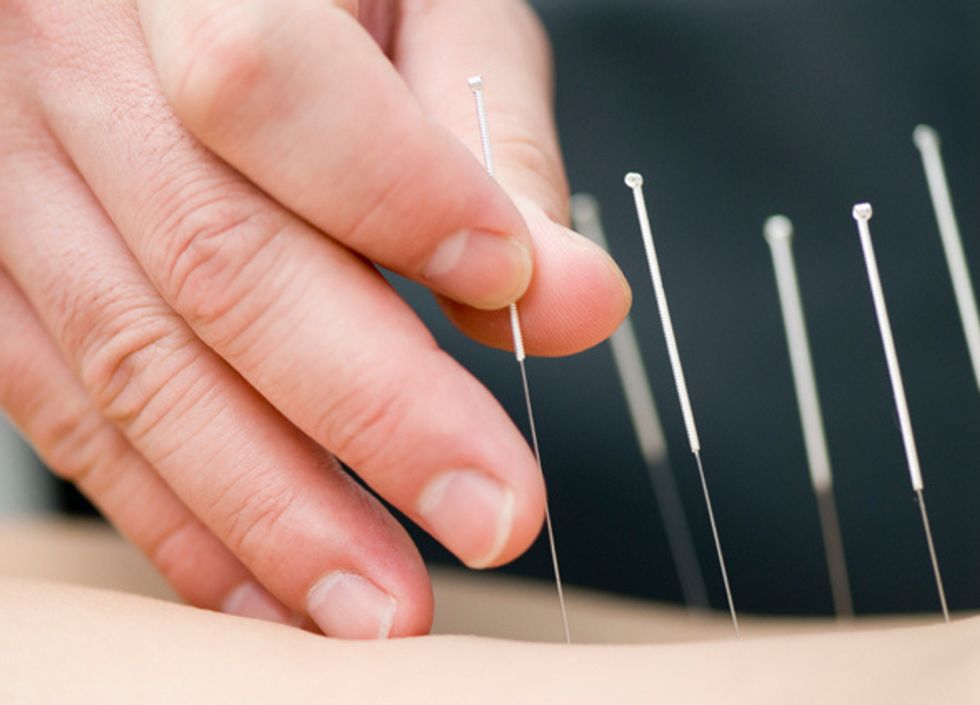Acupuncture is an ancient Chinese medicinal form of treatment that entails the painless but strategic insertion of thin needles into a "grid-like" pattern through a person's skin that spans from head to toe. The primary purpose of these needle insertion is to stimulate the specific "energy points" of our body to alleviate pain, regulate and balance vital energy- physically, mentally and emotionally.
Despite its prehistoric, oriental development and practice without any scientific significance early on, there are numerous studies conducted by scientists in the west to elucidate the mechanisms of acupuncture. Now the efficacy of this medieval treatment is not just acclaimed and emerged, but also massively practised throughout the world in treating numerous diseases, disorders and pain conditions.
With the efficacy of acupuncture therapy, you might be curious to dive deep into the whole acupuncture procedure. Well, here, we listed down all the possible questions you might have in mind before finding an acupuncture practitioner and scheduling your appointment.
What is the acupuncture treatment procedure?
The objective of acupuncture therapy is to stimulate and boost the body's resistance against illness and conditions. Throughout the body, there are hundreds of acupuncture points, including the head, arms, shoulders and feet. There are 14 major meridians or energy-carrying channels within those acupuncture points. Through small hypodermic acupuncture needles insertion by acupuncture specialists, the acupuncture points are stimulated and caused the release of endorphins and neurotransmitters (body chemicals that control nerve impulses).
By keeping the needles onto those specific body areas into various depths, this treatment leaves a regulatory effect on the body to block the pain or irritation from being delivered to the brains and provides an energetic map of the body.
How does acupuncture therapy feel like?
Each acupuncture session generally runs for 45-60 minutes. In the course, when acupuncture needle gets inserted through the acupuncture points, you may feel sharpness as little as a mosquito bite. So, in other words, unlike hypodermic needles, acupuncture needles are not sharp.
However, there are multiple types of common acupuncture sensations. Having an acupuncture point may rather feel heavy on the spots, which feeling may expand and spread throughout the body. This heaviness is calming and stabilising, not painful or oppressive.
Along with the heavy feeling, you might feel a very mild achy yet very tolerable sensation, which dissipates right after a few seconds. But in some special acupuncture therapies, the slight ache may be carried out throughout the session.
A bit tingling feeling on the engulfed acupuncture areas is also prevalent where the needles are inserted. More often than not, the tingly sensation also disappears soon after the needles are inserted.
What are the side effects of acupuncture?
Since the whole procedure of acupuncture therapy is entirely natural, there's no typically labelled post-acupuncture "side effects" we could possibly think of. However, there could be instances of slight discomfort in different areas of your body after taking the acupuncture therapy as well as some irregularities in terms of day to day biological habits.
Some people may encounter momentary tiredness or fatigue after taking the acupuncture sessions in its earlier stage. Mild ache or soreness around the needle inserted body areas are also common which also dissipates within the first 24 hours. Muscle twitching, lightheadedness etc. are some of the other common post acupuncture affects people typically encounter after the procedure is done or in between two sessions.
The best way to utilise all the benefits the acupuncture therapy has to offer for the specific kinds of health conditions, you need to find natural health practitioners specialising in acupuncture, along with alternative and Chinese medicines.























